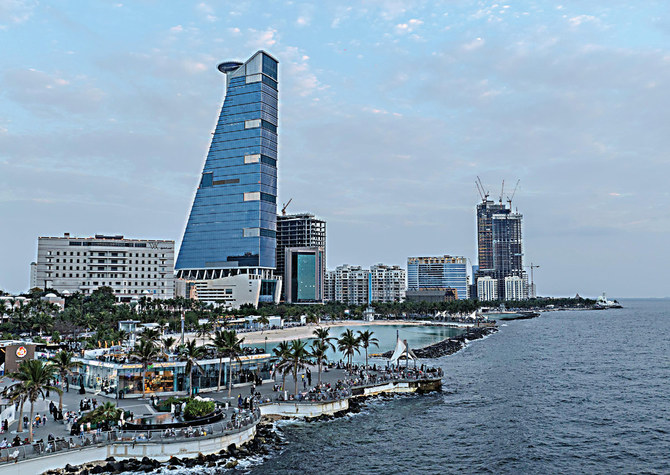
It is a fact that the Middle East and North Africa (MENA) region is facing a serious climate crisis. This is demonstrated by the many negative changes that could impede the economic growth of this part of the world. However, both Saudi Arabia and the UAE are leading the regional effort to combat the dangerous consequences of the deterioration of the environment in the Middle East. The governments of all MENA countries now have to take quick and decisive actions to stop the effects of climate change, especially through sustainable development efforts.
The basic scientific definition of climate change is provided by US space agency NASA, which calculated an increase of 1.18 degrees Celsius in the temperature on Earth since the late 19th century. The main reason for this temperature rise is the growing amount of carbon dioxide in the atmosphere. Greater human activity due to an ever-increasing population has also contributed. The last 40 years are viewed by scientists as the warmest on record.
Climate change has had devastating ramifications for the societies and economies of the Middle East. It is undermining supplies of fundamental economic resources, including water in rivers and lakes evaporating at an increased rate. This leads to the inadequacy of water resources. Countries in the region are having to increase the amount of water pumped from underground and are relying more on desalination. Difficulties in securing water resources particularly impacts agriculture, as farmers have to use more fertilizer to ensure successful harvests.
The rise in temperature means greater use of air-conditioning systems by businesses and households, which means greater electricity consumption. Higher temperatures can also reduce the hydroelectric production of electricity, since water shortages hamper the operation of turbine generators. In addition, when humans work in higher temperatures, they risk suffering from many health problems, such as dehydration.
Any reduction in energy supplies is very harmful to the economy of MENA countries. In Egypt, if electricity supplies from the Aswan Dam decrease, this will result in regular power outages. Governments in the region are debating the cost-benefit analysis of placing a higher tax on businesses for their use of energy or of decreasing household energy subsidies to save money on the consumption of energy.
In general, there could be more competition among MENA countries over the securing of energy resources. This will have serious geopolitical implications. Daesh was controlling and selling oil from Syrian and Iraqi oil fields before these areas were recaptured. This is the clearest indication that energy sources are the geostrategic center of power in the modern Arab world. The potential inadequate supply of energy in Arab countries, especially Egypt and Sudan, defeats the efforts by governments to provide short-term solutions to the problem of energy shortages, since these crises require long-term planning. In this regard, nuclear energy cannot be an immediate solution to the problem of energy scarcity because there are many issues surrounding any plan to build nuclear reactors, and producing electricity from nuclear power plants takes a long time.
Climate change has had devastating ramifications for the societies and economies of the Middle East.
Maria Maalouf
Exacerbating the potential energy dearth is the high consumption of energy by public transportation systems in the Middle East. They are considered less than energy-efficient compared to international standards, contributing higher levels of carbon dioxide emissions. The concept of a carbon tax, either on the production of carbon dioxide locally or due to imports from other countries, is still being assessed, since it would have significant economic effects. Furthermore, sustainable development is being introduced as a paradigm in many societies in the Middle East. However, it requires the best management of economic resources and this is a policy that is still not well developed in MENA countries.
There are many creative solutions emerging from the countries in the region to overcome the challenges of climate change. Saudi Vision 2030 perceives a diversified energy economy in the Kingdom that will rely on other sources of energy than oil. In this regard, the Saudi Green Initiative aims to plant 10 billion trees in the coming years. This is part of the bigger Middle East Green Initiative plan to plant 40 billion trees. Climate change experts have judged this policy to be the most extensive reforestation project in the world. Moreover, the UAE has announced its National Climate Change Plan for the years 2017 to 2050. Among its innovative strategies is an attempt to overhaul the design and construction of buildings in the country, which account for 80 percent of energy consumption.
In conclusion, climate change is the issue that is shaping politics and societies in many nations at present. MENA countries have accepted some criticism for not doing much to fight it in the past. But Saudi Arabia and the UAE seem to be the pioneering countries in establishing policies that have a chance of delivering promising results on the human capacity to answer the challenging question of climate change and its disastrous consequences.
Maria Maalouf is a Lebanese journalist, broadcaster, publisher, and writer. She holds an MA in political sociology from the University of Lyon. Twitter: @bilarakib
Disclaimer: Views expressed by writers in this section are their own and do not necessarily reflect Arab News" point-of-view












